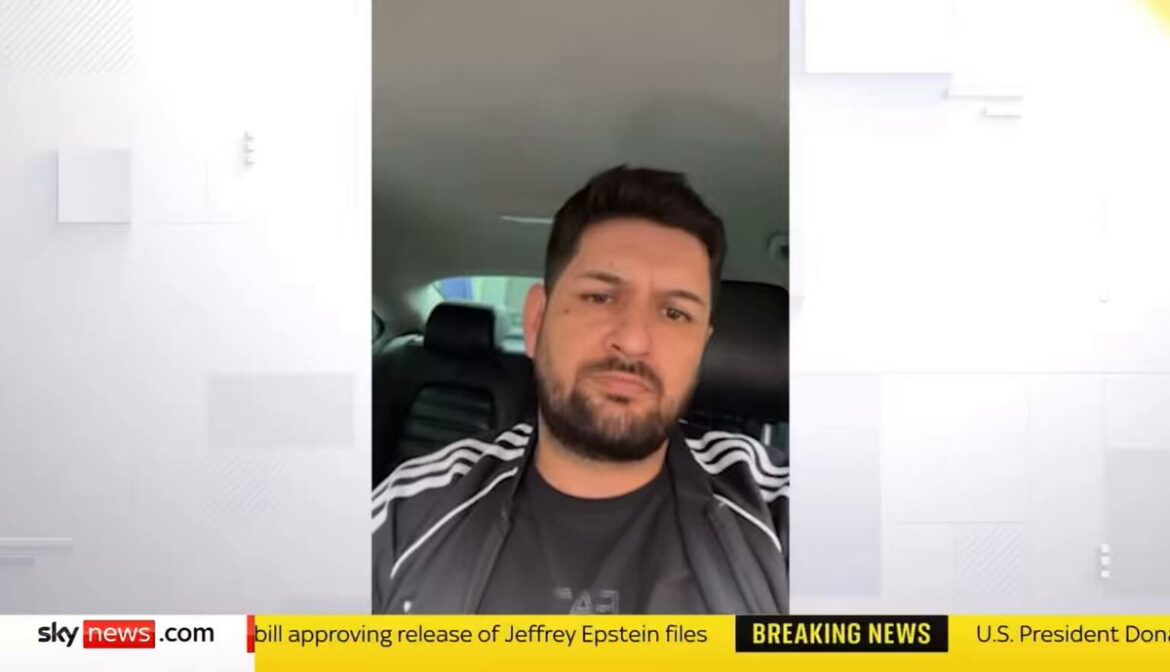The UK Home Office has come under scrutiny after it emerged that the leader of a Romanian grooming gang was allowed to apply for a £1,500 deportation incentive while he was still in prison awaiting trial for multiple rapes.
Marian Cumpanasoiu, 38, led a gang responsible for grooming, drugging, and sexually abusing vulnerable women in Dundee.
The women were coerced with alcohol and drugs into participating in degrading sexual “games” in dingy flats and were sometimes forced into prostitution for paying clients.
Despite the gravity of the charges against him, Cumpanasoiu was issued a “voluntary return form” in August 2024 while in custody.
The scheme is intended to encourage foreign criminals and migrants to return to their home countries in exchange for a payment.
While Cumpanasoiu reportedly expressed a desire to return to Romania, the plan was later blocked.
Lengthy Prison Sentence and Deportation Plans
Cumpanasoiu was eventually sentenced to an extended 24-year term for sexual and human trafficking offences.
At sentencing, it was revealed that his right to remain in the UK—set to expire—had been automatically extended under the EU Settlement Scheme, which renews pre-settled status after five years.
That status has now been revoked, and he is scheduled for deportation after completing his sentence.
Rape Crisis Scotland expressed deep concern over the Home Office’s handling of the situation.
A spokesperson said the gang’s crimes were horrific, involving numerous vulnerable survivors who displayed extraordinary courage in coming forward.
They questioned why the Home Office attempted to intervene before a verdict had been reached, highlighting the need for survivors to have faith in the criminal justice process.
Details of the Gang’s Crimes
Cumpanasoiu was jailed alongside four associates: Christian Urlateanu (41), Alexandra Bugonea (35), Remus Stan (35), and Cataline Dobre (45).
Between 2021 and 2022, the group targeted women aged 16 to 30, luring some from Eastern Europe to work as prostitutes in Dundee, while also grooming local vulnerable women with gifts, crack cocaine, and whisky.
One victim was forced into prostitution after Cumpanasoiu and Stan created a profile of her online and drove her to meet men.
She described being sold a “pipe dream” of easy money, only to face abuse when she failed to earn enough.
Disturbingly, a video from Cumpanasoiu’s phone showed him threatening a victim who climbed a tree, saying, “Because you do not make money, you stay all day in the tree.”
A Pattern Across the UK
This case is part of a broader trend of grooming gang prosecutions across the UK.
Recent cases include:
- Five men from Romania and Albania convicted of sexual offences against six teenagers in Gateshead, Tyne and Wear.
- An Asian grooming gang in Rochdale, Greater Manchester, sentenced to a combined 174 years for abusing two schoolgirls from the age of 13.
These cases underline the ongoing vulnerability of young women and the lengths predators go to exploit them.
Court Proceedings and Testimonies
During sentencing, Judge Lord Scott condemned the Dundee gang for exploiting vulnerable women over a 15-month period, providing free crack cocaine to exacerbate their vulnerabilities for sexual gratification and financial gain.
Jurors heard testimony describing the sheer scale of the abuse and how the gang struggled to even remember all the victims.
Cumpanasoiu faced charges under the Human Trafficking Act for forcing women into prostitution, along with brothel-keeping offences.
Stan was convicted of four rapes, Dobre of two, and Bugonea for one rape and illegal sexual activity with another. Urlateanu faced nine charges, including the rape of four women.
Bugonea, during her testimony, downplayed her involvement, claiming her flat’s “sex parties” were meant to be a fun atmosphere and denying any plan to harm the victims.
Official Response and Next Steps
A Home Office spokesperson confirmed that Cumpanasoiu will serve his full sentence for his crimes and will be considered for deportation at the earliest opportunity.
Once a deportation order is in place, his right to remain in the UK, including pre-settled status, will be automatically revoked.
This case raises serious questions about Home Office procedures and their intervention in ongoing criminal proceedings, highlighting the need for vigilance when dealing with foreign offenders accused of serious crimes.
Share on Facebook «||» Share on Twitter «||» Share on Reddit «||» Share on LinkedIn
